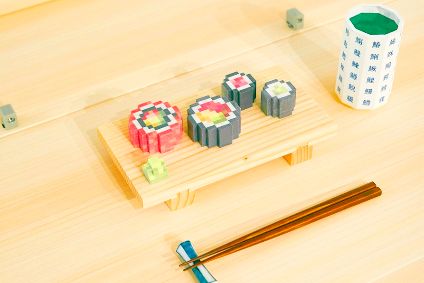
As part of the Trend Hunter Future Festival in Toronto last week, the consumer insights company laid out key trends for 2019. Here, Lucy Britner highlights the top picks for food and drinks.
The rise of cryptocurrency

Discover B2B Marketing That Performs
Combine business intelligence and editorial excellence to reach engaged professionals across 36 leading media platforms.
Digital payment will become a larger part of daily routines and cultural practices, according to Trend Hunter. The consumer trends specialists point to cash-free cryptocurrency cafés, such as The Ducatus Café in Indonesia and Singapore, which only accepts cryptocurrency.
“The slow transfer of this currency from online-only uses to real world ones sets a precedent for how to gain consumer trust when it comes to highly unfamiliar concepts,” Trend Hunter says.
Watermelon seeds
Touted as “the next ‘superfood’ ingredient”, Trend Hunter predicts the seeds will appear in cosmetics as well as food products. Examples already around include Go Raw’s Nutrition Bars and Sakara’s Watermelon Seed Butter.

US Tariffs are shifting - will you react or anticipate?
Don’t let policy changes catch you off guard. Stay proactive with real-time data and expert analysis.
By GlobalDataSocialised blockchain
“Blockchain technologies are being used to enhance platforms designed for interactive community engagement,” Trend Hunter says. Take Bacardi’s Block Party – the company used blockchain to send out event invitations. Attendees can keep track of everyone who has been invited via a dedicated app, while invitations are passed around one by one, via Facebook.
Bacardi Block Party from andrea baridon on Vimeo.
Branded escape
Escape rooms continue to gain popularity and now brands are creating bespoke rooms in order to enhance a consumer experience. “These spaces offer experimental environments where brands are able to engage their consumers’ sense of curiosity and play, while simultaneously strengthening loyalty,” Trend Hunter believes. Examples include in-bar escape rooms in the on-premise as well as Mars’ Snickers Hunger Bunker, in which players are tasked with selecting a new flavour.
Branded podcasting
Again, consumer engagement is the key, here, with brands looking to curate their own series in order to connect with their audience. Brown-Forman has launched a whiskey podcast under the Jack Daniel’s brand, called ‘Around the Barrel’. The podcast shares stories and insights from the distillery, as well as the brand’s hometown of Lynchburg, Tennessee.
“Since podcasts typically have a niche focus or theme, they offer a unique platform for brands to present content within their market without being too sales-y,” Trend Hunter says.
Mobile drive-thrus
Convenience is king and mobile drive-thrus enhance the concept of convenience even further. Not only do mobile drive-thrus bolster accessibility to products, they also “offer a layer of customisation in service that the fast food industry tends to lack,” according to Trend Hunter.
Mobile drive-thrus include a rosé wine service in Long Island holiday destination the Hamptons, as well as a McDonald’s ‘Drive-Thru Truck’.
Clean Confection
The clean eating movement has reached the dessert world and companies such as Bonchou, which launched its Bonchou Eclairerie last year, are playing in this space with clean-ingredient artisan pastries. “The use of whole, largely unprocessed ingredients in desserts is able to cater to consumers who are concerned with the balance of maintaining health and permitting indulgence,” Trend Hunter says.
Abstract edibles
3-D printing has broken into the world of food and drinks and the concept is being used “not only for its convenience and novelty factor but its ability to construct otherwise-difficult abstract pieces”, Trend Hunter asserts. Examples include edible printed sushi from Open Meals, 3-D pastry molds and 3-D printed cocktail garnishes.
just-food analysis from October 2016: Packaged food eyeing 3D printing but progress uneven
Customised cannabis
From cannabis-friendly baking kits from The Baking Supply to virtual ‘budtenders’ to guide consumers through types and strengths, the customisation of cannabis use and production is allowing consumers to use the plant for their exact needs.
Augmented tradition
“Rituals steeped in tradition are adopted into augmented reality platforms,” says Trend Hunter. The use of AR demonstrates tech’s ability to represent tradition as well as engage today’s consumers in a way that is more relevant. Kabaq, for example, offers 3-D renderings of restaurant menu items.
Influencer education
As the influencer concept matures, it is the influencers themselves that are becoming involved in education within their areas of expertise. There are several conferences and courses intended to legitimise the power of influencers, including social media influencer schools and the ‘SnapHappen’ social snapshot conference, which is launching as a business-focused event. Last week, Trend Hunter’s president, Shelby Walsh, recommended brand owners should look to micro-influencers in the social media realm in order to drive consumer awareness.





